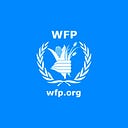Improving nutrition in Tanzania through community gardens
Raised gardens have led to increased crop production, raised income and self-sustainability for thousands of people
BY GEORGE ALOYCE MAGESSA
A group of women and men are working in a garden, constructing garden beds in Mlebe Village, Chamwino district, Dodoma. Zipora, a 36-year-old women, is busy watering spinach, wild amaranthus and other leafy vegetables.
“I have learnt how to produce healthy vegetables without having to till the ground.” said an enthusiastic Zipora. “My kitchen pot is full of food every night.”
The World Food Programme (WFP) Boresha Lishe project supports community gardens in Mlebe village, partnering with RECODA, a local NGO. Here community members grow vegetables using the keyhole method: sticks arranged in a circle and woven using rope and filled with soil, grass, and manure to form a raised bed, which requires very little water for the vegetable seeds to germinate.
This method of farming/vegetable production is new to this area. It is less than five years since communities were introduced to new farming methods.
Surplus produce is sold at the local community market. Money made from the sales are saved in VICOBAS (village community banks).
VICOBAS shares knowledge on banking and savings with the Boresha Lishe members and provides credit to low-income earners within the project in an effort to promote sustainable horticulture practices.
“We have benefitted a lot from this project.” said a thoughtful Zipora. “Our own gardens were not thriving so we needed to walk great distances to purchase vegetables or wait for the buses from town to arrive with whatever vegetables were available.”
Zipora and her family are now self-sustainable. As a result of the successful community garden, she was able to save up some money and purchased a pig that gave birth to many piglets. Some piglets were sold and the three she raised will soon give birth to more piglets.
Savings from the community garden allowed Zipora to build a house and enroll her two children into school. Zipora has grown from being a seasonal farmer of sunflowers with no livestock to an active garden and livestock farmer with the ability to invest for a more promising future.
Zipora is one of 30,000 people partaking in the Boresha Lishe project who have managed to change her life and that of her family.
Boresha Lishe project is a five year (2017–2021) project that is implemented by WFP in 124 villages in the Dodoma and Singida regions of Tanzania thanks to EUR13.4 million funding from the European Union and Japan. The project seeks to improve knowledge on nutrition, dietary diversity, practices in water, sanitation and hygiene (WASH), through social behaviour change communication, diversification of food production and distribution of specialized nutritious foods.
Read more about WFP’s work in Tanzania
